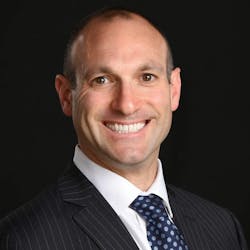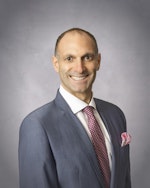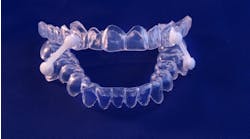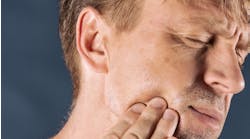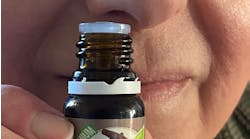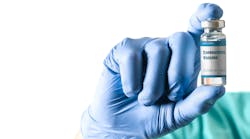Predicting health decline in our patients: A simple test dental professionals can perform
Biology of health and smell
Problems with the sense of smell can act as an early indicator of cognitive decline as well as signs of frailty in the brain and unhealthy aging. Olfactory sensitivity is the ability to detect an odor, and olfactory identification describes the ability to detect and distinguish an odor. As with most senses, the sense of smell weakens as we age. Peripheral senses such as smell may, according to recent research, predict aging changes in the brain.
Smell and health study
A recent study from the National Social Life, Health, and Aging Project, Wave, examined the ability of 1,160 older adults to identify certain types of smell and name the smell measured. Researchers assessed whether these two indexes were biomarkers for frailty and future health decline.
Study participants were exposed to five scents to measure identification skills and six scents to measure sensitivity, and then matched to their frailty score. For each one-point increase in both olfactory identification and sensitivity scores, frailty status declined significantly, which suggests that the ability to smell properly has a connection to better overall health in the aging population. Both the ability to recognize a smell (olfactory identification) and the ability to detect smell (olfactory sensitivity) were risk factors in predicting health and the risk of health decline.1
You may also be interested in …
Loss of smell and taste: Distinguishing between COVID-19 and the common cold/flu
Olfactory training and COVID-19-related loss of smell
What can the dental profession do?
Keeping an eye on the sense of smell may serve as an influential biomarker and risk factor for frailty. Smell tests may become an integral part of clinical dental care for aging people who may be cognitively impaired. A simple smell test of various scents, administered by a dentist or hygienist, that takes only minutes could potentially be used as a valuable tool to assess the risk of frailty or unhealthy aging.
Someone who fails a smell test may need to improve their nutrition or be referred for a more detailed neurological or medical workup. In addition, smell tests may be able to enhance clinical and research efforts in improving care for older adults, especially with long COVID-19 symptoms that can affect the ability to smell and taste.
Editor’s note: This article originally appeared in Perio-Implant Advisory, a chairside resource for dentists and hygienists that focuses on periodontal- and implant-related issues. Read more articles and subscribe to the newsletter.
Reference
- Nagururu MV, Bernstein IA, Voegtline K, Olson S, Agrawal Y, Rowan NR. The association of peripheral and central olfaction with frailty in older adults. J Gerontol A Biol Sci Med Sci. 2022;glac237. doi:1093/gerona/glac237

